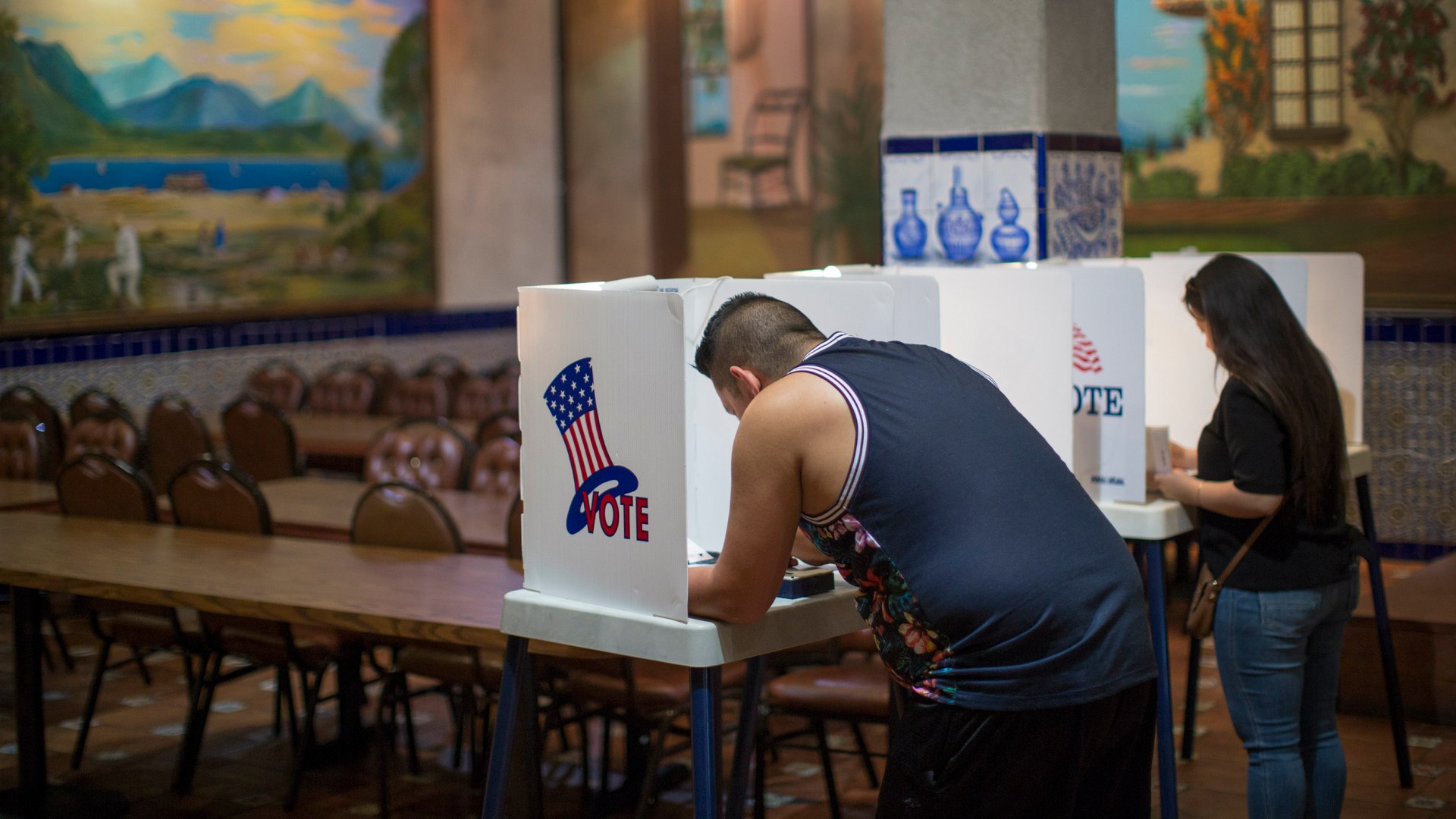A new survey focusing on Latino Christian voters found that former Vice President Joe Biden has a voting advantage over President Donald Trump. Even so, Trump’s support among the group has grown significantly since 2016.
It found that 62 percent of registered Latino Christian voters said they would vote for Biden, compared to the 30% who would vote for Trump, according to the Claremont McKenna College’s Latino Religions and Politics National Survey, which was released Wednesday.
Biden leads Trump among Catholics (67%–25%) and Protestants (52%–39%), but not evangelicals (46%–48%), the survey found.
The bilingual survey, which polled 1,292 Latino Christian voters between September 8–22, is described as the largest Latino religion and politics survey this election season. It exclusively focused on registered voters and Latino Catholics, Protestants, and evangelicals.
Gastón Espinosa, who chairs the religious studies department at Claremont McKenna College, said the survey featured 823 Catholics, with a margin of error of plus or minus 3.42 percent, and 453 Protestants and other Christians, with a margin of error of plus or minus 4.6 percent.
Espinosa said they focused on Latino Christians because they “make up the vast majority of Latinos who are religious.” Exploring the role of religion in politics is crucial given that nearly 70 percent of the surveyed Latino Christians said religious guidance is important in their daily lives, he said.
The top three issues among Latino Christian voters were the economy, COVID-19 and “stopping racial violence.” Most (64%) disapprove of the way Trump has handled the pandemic, and 59 percent of Latino Christian voters favor Black Lives Matter.
On abortion, 28 percent of Latino Christian voters said it should be generally available, 20 percent said it should be available under stricter limits, and 24 percent said it should only be available in cases of rape, incest or when the pregnancy poses a threat to the mother’s life.
Meanwhile, Trump’s favorability among Latino Christian voters has improved from 15 percent in 2016 to 32 percent in 2020. He’s also doing better in Florida, with 41 percent of Latino Christian voters supporting him compared to 35 percent in 2016.
Faith and Latinos are expected to play key roles in states like Florida, where there are more than two million registered Latino voters.
Trump, for example, launched Evangelicals for Trump in January by visiting El Rey Jesús Global, a megachurch in Miami led by Latino pastor Guillermo Maldonado. Biden last week launched Creyentes con Biden, which translates to Believers for Biden, to spotlight Latino Catholic and evangelical voices.
Although Biden has led Trump in swing states, Espinosa said a high percentage of undecided voters in these same states are Latino born-again Protestant evangelical Christians—a large group in which Trump is slightly leading Biden nationwide (48% to 46%).
Latino voters in swing states like Florida are not only key for Biden, but could also alter the presidential election, Espinosa said.
Espinosa said the nation’s growing Latino Protestants and other Christians are much more likely than Catholics to possibly vote Republican. (The survey’s ‘other Christians’ label refers to Christians from smaller Protestant denominations or who attend independent and non-denominational churches that are evangelical, Pentecostal or charismatic.)
This, Espinosa said, could “have a real impact on the election, because many are undecided and have a history of swinging over and voting Republican.”
According to the survey’s report, 46 percent of Latino undecided voters are born-again Christians.
Among Latinos across the nation, Catholics have declined to 54 percent and Protestants and other Christians have grown to 30 percent, the survey found.










